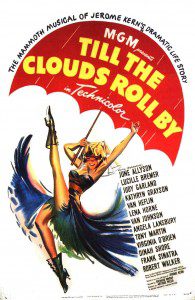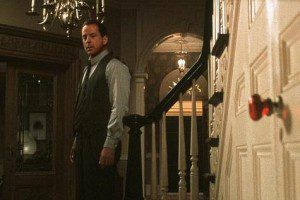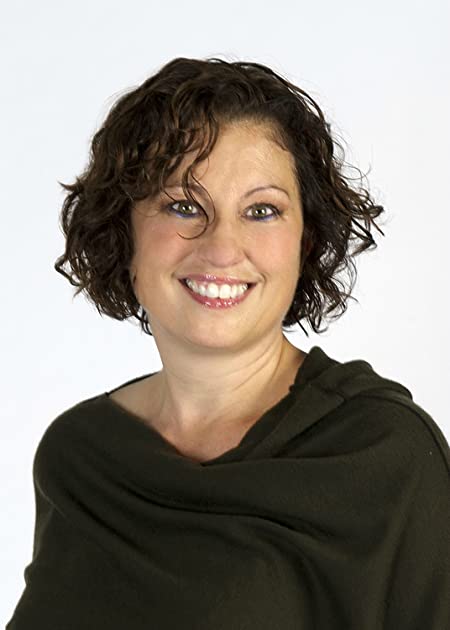Author Terri Giuliano Long recently self-published her début novel In Leah’s Wake. Terri’s story explores the aftermath created when a teenage soccer star falls for a party-loving boy with a drug-dealing past.
I enjoyed the read. Although this is Terri’s first novel, it’s obvious she’s a journeyman when it comes to writing. I know this not only through reading her book, but also by visiting her blog, The Creative Life, where she provides expert advice.
Terri and I have traded messages in the past, so I asked if she would make time for an interview. I thought she might have some insights for our readers. I was blown away by her thoughtful in-depth responses to every question.
If you are considering self-publishing, she provides a wealth of advice in her answers below. Invest a few minutes of your time. I guarantee a worthwhile return on your investment.
Be sure to read my review of In Leah’s Wake.
Q.Who is Terri Giuliano Long? Tell us a little about yourself.
A.I’m a wife and mom first. My husband, Dave, and I have four adult daughters, two married, and three grandchildren, with on one the way.
Professionally, I’m a writing teacher. I lecture at Boston College, where I’ve taught creative and nonfiction writing for 15 years. I’ve also written copy for marketing, advertising and public relations, edited technical articles for trade journals, and edited a small trade magazine. In Leah’s Wake is my first novel. These days, other than teaching, or doing occasional marketing or editing work, I spend my time writing. I’m currently at work on a second novel.
Q.How long have you been a writer?
A.I’ve always been a writer at heart. As a child, I entertained myself by making up stories and acting in my own improvisational plays. In high school, the majority of my hobbies and activities somehow involved writing. One day, brazenly, I walked into the editor’s office at the town paper and asked for a job. For a while, I covered sports and general high school news. Eventually, the editor gave me my own column. I was sixteen. That column was my first paid writing job. I earned about a dollar a week – and I knew then that writing was the only job I’d ever want.
I can’t imagine not writing. I’ve been a writer, in one form or another, my whole life. Writing transports me; I lose myself in the process.
Q.When did you decide to write a novel? What compelled you?
A.I’m not really sure. I articulated it for the first time about fifteen years ago. As I’ve said, I’ve always been a writer, in one form or another; it’s not as though I’ve always driven to write novels. I was happy writing news articles and features. Unlike some writers, I actually enjoy writing marketing copy. My bio says, in an alternate life I might have been an international food writer – and that’s very true too.
In grad school, like most students, I focused on short stories. My second year of grad school, I took a novel writing course and developed some of the ideas that later came together in my novel, In Leah’s Wake. Since then, I’ve been hooked.
Q.Tell us about your favorite place to write.
A.Anyplace where I’m not anxious. I apologize if that sounds snide. When I’m anxious, worried about someone I care about, I can’t string two words together. So quiet, peaceful places are my ideal. I’m easily distracted, so I prefer small spaces, with no Internet access.
Like you, I write well on planes. My husband and I have homes in Massachusetts and California and frequently travel cross-country. On a long flight, you’re trapped; to maintain space, most people disappear into their own world – watch TV, read, work on their iPad – so, in a sense, though surrounded by people, you’re alone. I relax and my mind opens up – I’ve come up with a lot of good ideas, and written first drafts on planes.
When conditions are less than perfect – for most of us they often are – I read. Reading relaxes me enough to write. For others, walking, meditating, listening to music can help.
Q.Are you a Pantser or a Plotter?
A.For the first draft of In Leah’s Wake, I was a pantser. I had no idea where I was going – in writing programs, organic writing is often encouraged. In the revision process, I looked for and developed themes. In Leah’s Wake is character, rather than plot driven, so plotting would have resulted in a different book. In that sense, I think it’s helpful to know who you are and what your goals are. For literary fiction, the goal is to develop and understand character. I hope I’ve done that. The goal of genre fiction, on the other hand, is to entertain. I’m not saying you can’t break rules – plot lit fiction or write character-driven genre novels. But there are conventions. If you break the rules, you may lose readers. We as writers need to understand that – break the rules, but prepare for the consequences.
My novel-in-progress, Nowhere to Run, is a psychological thriller, so I’m approaching that differently, in a sort of hybrid fashion, I guess. I’ve mapped out a partial plot, which I’m using as a marker, and writing organically. While I certainly recognize the benefits of plotting, I feel that sticking too firmly to plot limits the writer. Writing from A to B to C can feel wooden – not only to the writer, but to the reader. Allowing yourself some freedom opens you to new ideas and possibilities. It also makes the writing a far messier process.
Q.Our readers are always looking for writing tips. What one tip sticks out in your mind that most helped you?
A.It’s tough to choose one tip. Forced to, I’d say read. Read voraciously. Reading helps us become better writers. Writers learn to write by reading like writers – reading closely and observing and imitating craft.
Next – I’m cheating – trust your instincts. People – friends, agents, editors – will tell you what you should write, how you should revise your book. Listen carefully. Often, they’re right. Other readers notice things we’ve missed, and provide valuable insight and advice. But don’t let anyone remake your book in his or her image. Don’t let anyone else dictate what your book is about. Stating the case emphatically does not make a critic right. The best editors in the business have turned down books that eventually won prizes and/or sold millions of copies. If you agree with the advice, great – go to it. Don’t let anyone pressure you into making changes you don’t agree with.
Third, have a firm grasp of grammar and punctuation. It’s fine to use simple language. It’s not fine to submit or release a book filled with grammar and spelling mistakes. If you’re unsure of a rule, look it up. About $ 35 a year gives you access to the online database of the Chicago Style Manual – a fantastic resource that I use regularly. When you finish writing, ask someone to proofread. If you don’t know anyone who can help, you might consider hiring a professional editor. It’s well worth the money to correct these mistakes.
Q.What was the inspiration for the concept behind In Leah’s Wake?
A.Years ago, I wrote a series of feature articles about families with drug and alcohol-addicted teens. The moms talked candidly about their children, their heartbreaking struggles. Those stories stayed with me.
When I began writing In Leah’s Wake, our children were teens. Most families struggle in some way during the adolescent years. We’re no different – though, thank goodness, we experienced nothing remotely like the problems and challenges the Tylers face.
As a parent, I knew how it felt to be scared, concerned for your children’s future. That, I think in retrospect, was the primary force that drove me to write this story. My work with families, my personal experiences and my core beliefs – all these things played on my conscious and subconscious mind, and ultimately took shape as this book.
Q.How long did it take from inception to finished manuscript?
A.I wrote the first draft in three months. It was my MFA thesis, so I was under the gun. The writing was dreadful, but it was a breathy process; when I finished, I knew the characters and the novel had a general shape. I spent the next several years immersed in the book, developing the characters. I was with them all day; they took over my dreams. I almost believed they were alive, that Cortland, the imaginary town, was a real place. It was an adventure, and I loved every minute. Total, start to finish, about five years.
Q.You originally planned a traditional publishing route, but ended up self-publishing. Tell us about your experience and what factors led to this decision.
A.In 2006, the book was under contract with an indie publisher. Shortly before the release, problems emerged. Soon after (unrelated to me), the company folded. I sent the book to a handful of agents, received lovely, complimentary responses, but no offers. I really believed in this book. I’d received so much encouragement over the years, from agents, editors, readers, writer friends—I’m grateful, truly grateful to all of them—that I had a hard time letting go. For years, I tried to revise. Eventually, I realized I was writing in circles. The book had changed, but it had gotten no better. Reluctantly, I put it away.
Last year, after several false starts, I finally gained traction on a new novel, my psychological thriller, Nowhere to Run. Like In Leah’s Wake, Nowhere is a family story at heart. I anticipate finishing the new novel this fall. I knew I’d need a platform for this new book, and hoped that self-publishing In Leah’s Wake would help me build one.
A lot of people self-publish today; for me, the indie route was a new, and scary, avenue. It’s been bumpy ride – and the best thing I’ve ever done for myself.
Q.Some self-published authors simply publish their work without doing any real marketing. You’ve chosen to promote your book. Tell us about what steps you’ve taken and which worked best?
A.To be honest, Dax, I’m a case study in what not to do. Until March, other than my website and two ads, I relied entirely on word of mouth. Initially—this is embarrassing, because it’s so silly—I was too self-conscious to promote. I placed ads, with links to my website, and my husband, Dave, sent books to a few people. In December, my daughter Natalie, bless her heart, put a link to my site in her email signature. Gradually, friends and family heard I’d published a book. My sister Audrey posted a link on her Facebook page. My cousin Amy did the same. Two amazing women—I am hugely indebted to both! My parents (I hadn’t even told them) spread the word to extended family, friends.
In March, I activated the Twitter account I’d registered in 2009. On Twitter, I met Emlyn Chand, president of Novel Publicity. Impressed with Emlyn’s blog, I contacted her for help with social networking. Emyln is so creative and smart, incredibly knowledgeable in all aspects of social marketing, and her enthusiasm is positively contagious! She ramped up my Twitter account and built Facebook and Goodreads author pages, among others, and created book a club discussion guide. Novel Publicity also created the promotional trailer posted on your site. Next week, Emlyn begins book club and bookseller outreach, and we’ll do a Twitterview. We’re also considering a “reach for your dreams” program for high schools.
In addition, I have a wonderful traditional book publicist, Stacey Miller, who’s working all the traditional avenues – sending press releases to news papers, radio shows and so on. Putting all the pieces in place takes time, so it’s only now that the book is being actively marketed. For my next novel, I plan to start promoting well ahead of publication.
Q.In a traditional publishing arrangement, the publisher provides experts in final editing, printing, distributing, marketing and public relations. When you self-publish, these experts aren’t there. How did you compensate?
A. That’s another great question. Lately, I see a push to get as many books on virtual shelves as possible. Apparently, having a strong backlist increases sales numbers. That may be true. Nevertheless, writers need to be patient – this is a challenge. It’s exciting to finish a draft. In that first flush, the work glows; every word seems perfect. You can’t wait for someone to read it – as a result, some writers put work on Amazon or Smashwords before it’s ready.
Unless you have an outstanding grasp of language and grammar, I suggest professional editing. The truth is, we all make mistakes – even writers who’ve published for years. After you’ve spent a certain amount of time on a manuscript, you stop seeing mistakes. I’ve read and reread my novel; I asked family members and friends, independently, to proofread; my writers group read it, and an editor read and proofed it – yet, last week, Dax very kindly pointed out three typos that every one of us had missed. It happens.
Publishing a novel with three minor errors is not the end of the world – most books, indie and traditionally published, have a few. Egregious mistakes make us look unprofessional. Agents and traditional publishers will likely reject the work; if you self-publish work rife with grammatical or technical errors, you’ll open yourself to criticism and heartache.
After you’ve finished your draft – of a story, a novel – take a step back. Let it sit. Try to gain some distance and perspective. Stephen King waits six weeks, then rereads and edits. Wait at least six weeks, and then reread, beginning to end, take notes and revise. Better yet, ask someone you trust, a family member or friend, to read your work and give you honest feedback (it won’t help if they tell you only what they love). A good critic will evaluate your work honestly – and push you to produce your best possible work.
While you’re finishing your final edits, look for a cover artist. You can probably create a cover yourself, but unless you have design experience I don’t recommend it. Covers sell books. You may need to give the designer ideas, so be sure you’re clear about your book’s theme. Take the time to get it right. This step will help you write your book description – which, like query writing, is a tedious, time-consuming process.
When your manuscript is ready to go, pay someone to format your book. Again, you can do this yourself, but be careful. Be sure you know proper formatting – when to indent, how to create proper margins, etc. A manuscript that looks perfect on your laptop can look entirely different – and messed up – on a Kindle or other e-reader. So it pays to get it right. If you use Smashwords, they’ll give you a list of people who do this. Mine cost $60.
Next, before your pub date, mobilize your networks. Spread the news to family and friends, send copies of your book to anyone who might be interested in reading, and ask them to spread the word. When the book is out, ask family and friends to post reviews.
If you can afford it, hire a publicist, and work hard with your publicist to promote your book. Over a million books are published each year, the majority of which sell very few copies. If you’re a name author or received a hefty advance, your publisher will promote you. The rest of us, unless we take PR into our own hands, will receive little or no notice.
There are various types and levels of promotion, so you need not spend a fortune. If you can’t afford or don’t care to hire a publicist, do the work yourself. Create a website; build your social network, contact reviewers and bloggers; reach out to book clubs. Stacey Miller’s book, How to Market, Sell, Distribute, and Promote Your Book: Critical, Hard-to-Find Information for Authors and Publishers, available through Amazon, offers a wealth of information. You can also find information online. Check out Seth Godin and Jon Konrath’s blogs. It’s hard work, and it takes time—as long as a year or more, I’ve been told—but it can be done.
Q.One last question: What has been the biggest lesson learned in your journey to write In Leah’s Wake and get it published.
A.Market, market, market. Have I said market? Again, start before you publish your book.
In 2009, 288,355 books were traditionally published, 764,448 indie or self-published. This was before the e-book explosion, so I can only imagine the numbers now. For your book to stand out, you have to make noise. While this is changing, it’s hard for indie publishers to garner reviews. My traditionally published friends were interviewed on radio and reviewed in places like USA Today and People. A radio spot or review in a large circulation paper or magazine generates interest and gets people talking. Few indie publishers land those major spots or reviews. If you hire a publicist, as I strongly recommend, you’ll have help with the work, as well as with generating creative ideas, and you won’t feel so alone.
Develop a strong social marketing plan. As writers, we have to engage. Readers are on the Internet – whether on blogs, Twitter, Facebook, Goodreads or some other network – talking about books. If you’re visible, maybe they’ll talk about your book. Really, though, these networks are about community. Even if you can’t directly link social networking to sales, you benefit from the mutual support.
Self-publishing was a good choice for me. I don’t regret it. If this is an avenue you’d like to explore, go for it! This is an exciting time for publishing – with tremendous opportunity for writers. Whatever choice you make, whether you decide to self-publish or hold out for a traditional publishing contract, hold onto your dream. You can make it happen!
Don’t ever give up!
I hope you’ll forgive the blatant self-promotion, Dax – please subscribe to my blog, “The Art and Craft of Writing Creatively.” You’ll find all sorts of tips and information on craft, as well as inspirational posts.
I want to thank Terri for making time for our interview. I wish her the best of luck. I am confident that In Leah’s Wake will be successful, and I’m looking forward to Nowhere to Run.
Update: If you have a question for Terri, please use the comment section below to submit it. I’ll gather questions from Saturday, June 4 through Friday, June 10. At that time, I’ll batch up all your questions and submit them to Terri.
Here is the book trailer:
I wrote this interview as part of Book Blog Tour in conjunction with Novel Publicity.
What’s a Book Blog Tour? The Book Publicity Blog has an excellent article that explains the concept.
There is no compensation for participation, but Novel Publicity rewards the blog that gets the most votes for their participation.
If you have time, please click here, scroll to the bottom of the page, find “Traffic Breaker Poll” and vote for First Manuscript.
Update:
First Manuscript won Novel Publicity’s Traffic-Breaker Award! This award goes to the blog participating in the book tour which receives the highest number of votes. I want to express my sincere appreciation to all those who voted for us, especially my critique team who surprised me when they announced they’d all voted. Thank you!
If you are interested in purchasing a copy of In Leah’s Wake, please click on the link below.
(Full disclosure: If you do so, we earn a commission. Thank you.)
Comments
Related Posts

Till, ‘Til, Til or Until? Which is right?
I was sure that till meant breaking up dirt; that until meant “up to the time of”; and, when people shortened until in speech, you wrote it as ’til – or maybe just til. But, after a little research, I learned I had it wrong.

Condense a Novel into One-Page Synopsis
Sooner or later you will need to condense your entire novel down to a one-page synopsis. For novelists, it’s a herculean task. Here’s how I did it.

Taglines Make Characters Memorable
Taglines or catch phrases make it easy for readers to remember a character. When they are done right, even years later, we recall the character with clarity.

Types of Foreshadowing (with Examples)
Foreshadowing is an essential ingredient in any good story. There are many ways authors foreshadow. Here are different types of foreshadowing with examples.



0 Comments
Trackbacks/Pingbacks